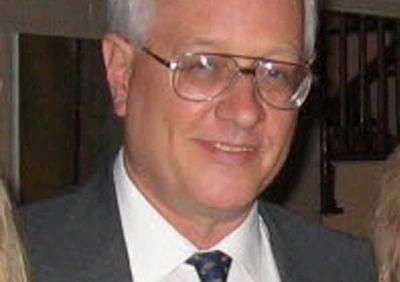
by
Monifa Thomas
Staff Reporter
September 20, 2009
from
ChicagoSunTimes Website
A University of Chicago researcher studying the
genetics of the
plague bacteria died last week from an
infection he may have gotten in the laboratory, officials said Saturday.
The researcher, 60-year-old molecular genetics Professor Malcolm J.
Casadaban, died Sept. 13 at the University of Chicago Medical
Center's Bernard Mitchell Hospital.

Malcolm J. Casadaban
An initial autopsy showed that Casadaban "showed
no obvious cause of death" except for the presence of the weakened strain of
the plague bacteria
Yersinia pestis in his blood, the U. of
C. Medical Center said in a statement.
It is not known to cause illness and has been used in some countries as a
vaccine to protect against the plague. It has been approved by the
Centers for Disease Control and Prevention for lab studies.
University officials said there does not appear to be a public health threat
related to Casadaban's death. There have been no illnesses reported by those
who came into contact with him.
As a precaution, University of Chicago notified Casadaban's close contacts
once the bacteria had been identified in his blood. The medical center's
infection control team is also working with the city and state health
departments and the CDC to investigate the death.
Casadaban held degrees from Harvard, Stanford and the Massachusetts
Institute of Technology. He was also listed as a member of U. of C.'s
Institutional Biosafety Committee, which reviews and approves research
protocols involving the use of biohazardous materials.
He had been studying the genetics of harmful bacteria, including a strain of
Yersinia pestis that lacked most of the bacteria's harmful
components, the university said.
Because this form of the bacteria is not known to cause problems in healthy
people, special safety procedures are not required to handle it, said Dr.
Kenneth Alexander, a virologist and chief of pediatric infections at the
U. of C. Medical Center.
Lab researchers who work with the bacteria would typically wear gloves, a
lab coat and protective goggles, and the bacteria would be disposed of in a
biohazard bag and heated for about two hours, Alexander said.
Two key questions in Casadaban's death will be whether there was anything
different about the strain of bacteria he was handling and whether Casadaban
had any underlying conditions that may have made him more susceptible to
infection, Alexander said.
"There's no indication thus far that this is
anything different from the laboratory strain that we know it to be," he
said. "I can't find any reports of anything like this happening before."
Casadaban's family said they were stunned by his
death, in part because he was very health conscious and had no chronic
medical conditions they knew of.
"We're pretty devastated," said Casadaban's
daughter Brooke, 28.
Leigh Casadaban, 21, said her father,
"tried so hard to be healthy. He hated
smoking. He would never even let us watch a movie with smoking in it. He
never used alcohol."
Casadaban grew up in Metairie, La., in a family
of seven children, and he excelled in science from an early age, his
daughters said.
Both daughters remembered their father as a
"brilliant" man who loved to share his knowledge of science, but who was
easygoing and never boastful.
"Words can't really describe what it's like
to grow up with a genius," Brooke Casadaban said.
A memorial was held Wednesday.

